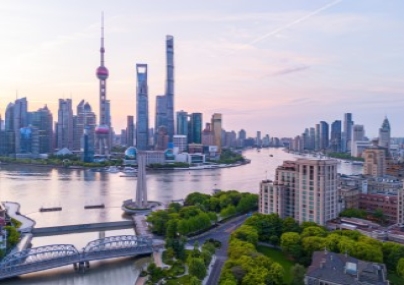
疫情疑云不定的2021年依旧被不确定性所笼罩,然而中国法律服务需求的增长似乎并未受到影响。律师薪资水涨船高,律所福利愈发丰厚,与全球同步,中国法律招聘市场呈现出异常火爆的景象。ALB与两位法律招聘专家聊了聊过去一年的法律招聘动向。
虽然疫情偶有爆发,但2021年中国政府对于疫情的良好控制为法律服务市场的稳定发展奠定了坚实基础。2021依旧是中国律师异常忙碌的一年,不过这也在无形中增加了他们的压力,更加大了律所对于专业人才的渴求。
ALB的纪录也印证了上述趋势:我们在过去一年报道了近百条中国法律服务市场横向招聘新闻。其中,君合、方达、竞天公诚等传统大所表现稳健;汉坤、世泽、卓纬等“零零后”甚至“一零后”律所也较为活跃。与此相较,国际所在中国招聘市场表现较为平缓,其横向招聘共占去年总收录额的20%。
“受疫情影响经济发展相对降缓,但以并购为代表的传统业务呈现出稳定态势,新业务的增长及创收发展迅速,律所可观的业务量为进一步吸引人才提供了基础。”
- 刘泽南,众猎国际
在众猎国际合伙人刘泽南看来,过去一年中国律所的良好业绩是招聘热潮出现的大前提。“受疫情影响经济发展相对降缓,但以并购为代表的传统业务呈现出稳定态势,新业务的增长及创收发展迅速,律所可观的业务量为进一步吸引人才提供了基础。”她说。
除了横向招聘更为活跃,人才市场热度上升的另一个指标是所谓“涨薪潮”的出现。“律所涨薪的消息最早出现在去年6月,大多数律所都做出了跟进,有一些律所的薪资调整将在今年1月进行,我们会着重观察。”刘泽南说。
Kingfisher法律招聘负责人Levana Huang告诉ALB,这次2021“涨薪潮” 由美国律所Milbank率先公布,律师起薪从19万美金/年涨至20万美金/年。 “中国本土律所也很关注国际法律市场变化”。加上疫情受控、经济复苏后中国律师“工作量明显增大,薪水其实和不断上涨的工作量挂钩”。有一家中国律所在普涨之余,还提出了适用于律师的lock-step,也就是工龄工资制。在她看来,律师薪资在市场机制调控下实现正常增长,反映了经过二三十年发展后,“中国律所开始从‘人治’,逐渐走向规范化阶段”。
此外,中国整个人才市场的激烈竞争也给律所带来涨薪压力。刘泽南指出,“一方面,同圈层律所间的人才流动性很大,尤其涉及新型业务:你培养出了一位律师,如果他/她去了竞争律所,可能代表着这块业务承接能力的大幅削弱,这也是律所会花较高成本维持人才的原因。”“此外,我们也看到越来越多律师选择到基金、创新型科技公司等展开新职业道路。”
“经济复苏后中国律师工作量明显增大,薪水其实和不断上涨的工作量挂钩……律师薪资在市场机制调控下实现正常增长,中国律所开始从‘人治’,逐渐走向规范化阶段。”
- Levana Huang,Kingfisher
2021年,外资所在火热的招聘市场中表现又如何?
Huang告诉ALB,过去一年她所在团队接触的项目中,70%都是外资所招聘项目,“说明国际所招聘量还是蛮大的,还有一定的吸引力”。不过她也坦言,外资所高年级律师希望转战本土所已经成为一种趋势,在2022年也将继续。对这些律师而言,“他们会失去一个自带‘光环’的平台,接下来要更注重个人品牌的打造”。
更复杂的需求
无论普通律师或合伙人,薪资是选择职业道路时的重要考量因素,但Huang指出,2021年表明,律师对于其他因素的重视程度也在不断提高。
“我们看到合理工作量成为了焦点话题。”她说,“律师的薪资应该对应多少个计费小时?很多时候律所只提出了最低要求,却没有设置最高上限。有些律师会指出他们工作量的不合理:甚至有部分律师达到了3000小时的年工时。”
Huang相信,未来身心健康将成为法律界愈发重视的话题。“越来越多合伙人提到,年轻一代律师非常注重工作和生活的平衡。目前国内市场正处于蓬勃发展期,但未来,对于‘平衡’的讨论会愈发主流。”她说。
此外,远程办公也开始被纳入中国律师的工作选项。如果说在欧美,“work from home”是疫情依旧肆虐下的不得已选择,在中国,它则更多体现了雇主对于雇员的体贴。“国内有一家精品所已经许可律所选择任意一天在家办公,甚至有律所对于律师是否进办公室也不再设硬性要求,这都是很大的制度性变化。”Huang说。
“文武双全”
专业性是律师的立身之本,伴随经济发展与市场需求变化,2021年哪些领域的律师最受青睐?
刘泽南将2021年最“抢手”的律师分为三大类。“首先是知识产权律师,尤其是深耕医药、通讯行业的专家”;其次,伴随中国内地资本市场进一步开放,为满足境内创新型企业的融资需求和居民的理财需求,“这一年融资融券、资产管理与二级市场通道业务的律师颇受欢迎”,但因为内地“过去对这类律师的培养偏于空白,人才从海外回流的现象比较明显”。
她观察到的第三类则是“地产领域投融资律师“。 “受政策调控,大型地产开发商、地产投资类基金都在寻求变化,更关注仓储物流、生命科技园区、数据中心,医养中心、兼顾工作与生活的泛公寓项目等新兴板块”。“互联网技术在地产相关场景的运用,”刘泽南进一步讲到,“近期热度很高的AI看房、物业智能管理系统等”,“是地产与其他板块交叉使投资需求增加的例子之一,也是地产投资新方向之一,对律师的需求量和技术要求都有所增加。”
在Huang看来,什么领域的律师最抢手,很大程度由不同时期的市场热点决定。例如2021年初,“资本市场持续回温,从SPAC热潮到港股的活跃,导致大家都在招聘资本市场律师……该领域律师的横向招聘业务几乎占了我们团队2021年总业务量的一半”。
年初另外的抢手律师则是“重整破产、劳动法律师”。尤其劳动法律师,“比较忙碌……裁员之外,他们还要承担大量的合规和调查工作,还涉及白领犯罪问题”,她说。
随时间推移至第二、三季度,除了刘泽南提到过的专利律师外,“网络安全领域律师特别抢手……尤其伴随《网络安全审查办法》的出台,律所开始需要此类律师支持公司赴国外上市项目”,Huang说。
抛开专业本领,“软实力”也是这两年法律招聘市场的热词。在此方面招聘专家又作何观察?
刘泽南从技能角度回答了这个问题。“这两年的新经济业务很多根植于科技场景,它所产生的,通常是基础法律问题在一个技术场景下不断演变后,最终产生的应用问题。这非常考验律师对技术的理解和想象能力--如何通过客户对技术和商业模式的描述,迅速领会其核心,并提出切实可行的建议。”
Huang则更多从心态、素质角度做出了观察。“进入远程办公时代,需要律师,特别是初年级律师具备自我管理的能力。”她说,“此外,疫情以来,大家发现很多事都令人措手不及,例如出差后突然遭遇长时间隔离、自己和家人突发疾病、生活和工作上的挫折……你有没有自我修复的能力?这考验着律师的身心健康。”
此外,“个人品牌这个话题也很有意思”,Huang说。“按照年龄计算,优秀的中国律师有机会在30-35岁之间成为合伙人,意味着他们要带领团队、做业务、和其他合伙人共同开发客户、对外招聘律师……个人名誉和团队品牌的打造愈发重要。”
城市选择
2021年开启的“十四五”规划特别强调区域经济发展,过去两年,完善区域市场布局也成为许多中国律所的核心战略,中国各城市正在为法律人提供更好的发展机会。根据ALB的一份调研,“新一线城市“对年轻法律人的吸引力正在逐步加强。
在刘泽南看来,北京、上海之外,“受惠于大湾区建设、政策的宽松以及与香港的地缘优势”,深圳无疑是过去两年最受律师青睐的城市。她观察到,深圳吸引了外资所、精品所争相开设办公室,已在深圳设立办公室的本土大所也在不断吸纳新团队。其次,华中重镇武汉、最高院新增巡回法庭的所在地南京及西安,对律师也有着很强的吸引力。
其次,华中重镇武汉、最高院新设巡回法庭的所在地南京及西安,对律师也有着很强的吸引力。
今年的“黑马”城市当属苏州。刘泽南说,中国医药行业发展迅速、投入多、数字化转型快,而苏州是国内生物医药产业创新聚集区。“苏州临近上海,两地生物产业园区有着频繁互动,苏州开始聚集起一众初创企业”,这些都需要并吸引着律师的到来。
法务招聘趋势
在律师横向招聘持续火热的2021,企业法务招聘又经历了怎样的变化?
在刘泽南看来,疫情项下,无论传统跨国企业或民营企业,“对数字化转型都表现出了很高的兴趣,会集中招聘数据、商业合作领域的法务”。而高新技术企业“逐渐进入成熟期,尤其完成C轮融资后,开始有明确的上市需求,企业会着手打造法务团队,或对现有团队进行升级、招聘总法律顾问等”。
另一个表现活跃的领域则是中小体量基金,刘泽南指出,它们往往关注于新消费、高新技术、医药等单独赛道,“很多新设了法务岗位,在过去一年展开了积极招聘”。
在能力上,刘泽南坦言,“如果说律师需要了解客户的技术,企业法务在此方面的需求则更为深入。法务要更灵活、更贴近商业团队,真正了解企业的核心竞争力和诉求”。此外,尤其是创新型公司,“成长速度快,内部体制有时尚无章可循,这就要求法务在沟通层面发挥很大的主观能动性,去把事情做成”。
未来建议
根据汤森路透针对55家中型律所的调查,“人才战的进一步升级”已经成为律所管理层最担心的问题。在中国,律所管理者对于“人才焦虑”也不陌生,对此两位招聘专家有何建议?
刘泽南提出,律所应根据不同年级律师的需求“因材施教”。例如低年级律师,“由于千禧一代越来越注重自身感受和工作成就感,律所需要设置更多辅助机制,去跟踪并后续完善他们的项目参与感受”。高年级律师则更需要“律所提供清晰的晋升通道”。
Huang则建议律所不断丰富律师培训项目,并注重培养合伙人的团队管理能力。此外,合理工作量也是律所管理者应思考的问题。 “过劳是导致很多律师选择跳槽甲方、工作量较小的二线内资所、外资所,或者参与小型精品所创业的原因。”她坦言。
对于律师个体,刘泽南则建议他们保持“学习和成长的能力”。“持续学习新法规、新政策,理解国际政治,理解商业模式和科技发展,”她说。
“私下聊天时,我会建议律师时常去思考自身的优劣势。” Huang则说,“无论通过和同行聊天,或展开自我测试,或和信任的猎头保持密切沟通,重要的是定期展开自我评估。”
LEGAL RECRUITMENT TRENDS 2021: HIGH PRESSURE, BRIGHT PROSPECT
Despite continuing uncertainty in 2021, demand for legal services remained buoyant in China. Lawyers received higher pay and better benefits comparable to their global peers, driving a boom in the hiring market. ALB has a talk with two experts on legal recruitment market in the past year.
Despite occasional outbreaks, the Chinese government has kept the pandemic well under control, laying a solid foundation for the stable development of the legal service market in 2021. Lawyers were kept extremely busy, which not only increased pressure on them, but also spurred a greater demand for legal talent.
ALB's data proves this trend, as seen from the close to 100 China partner hires recorded in 2021. The firms doing the hiring include not only Red Circle firms such as Jun He Law Offices, Fangda Partners and Jingtian & Gongcheng, but also strong up-and-comers like Han Kun, Broad & Bright and Chance Bridge. International firms were relatively quiet when it came to senior hires in China, though, accounting for just 20 per cent of partner laterals.
"Despite the economic slowdown amid the pandemic, M&A and other traditional practice areas remained robust. New business areas also enjoyed good growth and generated considerable revenue, paving the way for more hirings."
- Liu Zenan, Connected-R International
According to Liu Zenan, partner at recruiter Connected-R International, the outstanding business performance of Chinese firms was the catalyst for hiring in 2021. "Despite the economic slowdown amid the pandemic, M&A and other traditional practice areas remained robust. New business areas also enjoyed good growth and generated considerable revenue, paving the way for more hirings," she says.
In addition to more active legal recruitment, another indicator of a burgeoning talent war was the number of law firms offering pay raises. Liu adds: "Last June showed the first sign of pay rise, and most law firms followed suit, and some are expected to adjust pay rates this January. We are watching this closely."
Levana Huang, Regional Business Director at Kingfisher, a legal staffing agency, tells ALB that the “wave” of salary increases started with Milbank. As economic activities rebounded, Chinese lawyers see "significant increase in workload, and therefore higher pay."
Huang also noticed that "some Chinese firms have recently proposed lock-step. This is a trend of standardization worth watching in the coming five to ten years." According to her, lawyers receiving regular pay increments demonstrates that "Chinese firms are increasingly meeting international standards.”
Fierce competition for talent has put pressure on firms to raise salaries. “There is high churn rate of talents among firms of similar calibre,” Liu notes. “More lawyers are also embarking on new careers at fund companies or innovation-driven high-tech firms.”
While Huang tells ALB says that 70 per cent of assignments handled by her team in 2021 were from foreign firms, indicating their continued competitiveness, she adds that senior associates from international firms are increasingly moving to local firms, a trend she expects to continue in 2022.
"As economic activities rebounded, Chinese lawyers see significant increase in workload, and therefore higher pay…… lawyers receiving pay increments demonstrates that Chinese firms are becoming increasingly standardized."
- Levana Huang,Kingfisher
EVOLVING NEEDS
Huang points out that in 2021, both associates and partners were increasingly focusing on factors other than money when it came to their careers.
"Having a reasonable workload has become a focus. In many cases, firms have set minimum but not maximum number of billable hours,” she says, “Some lawyers complained about the heavy workload, and some of them reported having clocked 3,000 billable hours a year.”
Huang believes that the legal profession will pay increasing attention to wellness and mental health going forward. "Partners increasingly realize that young associates value their life and feelings, and the work-life balancing will be a mainstream topic going forward," she says.
In addition, working from home is also becoming an option for Chinese lawyers. "One of Chinese boutique law firm allows its lawyers to work from home one day per week. Some no longer mandates working in the office. These are major system changes,” she points out.
MULTIDISCIPLINARY EXPERT
Professional expertise is crucial for lawyers. Which areas were most sought after in 2021?
According to Liu, the most sought-after lawyers in 2021 practice in three areas. "First is IP lawyers, particularly those specializing in pharmaceuticals and telecommunications." Second, as the domestic capital market opens wider to foreign capital, “lawyers practicing securities margin trading, asset management and secondary market channel distribution were favoured” to tackle the financing needs of innovative firms and the wealth management needs of residents. “Such talents, however, are mostly those who “returned from overseas due to the lack of training previously."
The third category is real estate lawyers. “Large real estate developers and property investment funds are shifting focus to logistics, life science, data centre and other emerging sectors amid regulatory scrutiny. To serve sectors derived from real estate, such as AI house viewing and smart property management systems,” says Liu. "The crossover sectors has increased the demand and skill requirements for lawyers."
Huang believes that the most-wanted practice areas are largely dependent upon market hotspots. In early 2021, "capital market lawyers were most sought after because of capital market recovery, SPAC boom and buoyancy of Hong Kong IPOs. Recruitment in this area nearly accounted for half of our team’s total business in 2021," she tells ALB.
Other hot areas in early 2021 include "bankruptcy, restructuring and labour law.” Labour lawyers were "particularly busy. In addition to retrenchment, they had to undertake compliance and investigation work, some of which involved white-collar crimes," she adds.
In the second and third quarters, "cybersecurity lawyers became increasingly in demand.” With the publication of the Measures for Cybersecurity Review, “firms started to hire such lawyers to support corporate and IPO projects.”
What’s more, soft skills are becoming increasingly important in legal hiring.
From the skillset perspective, "the emerging economic sectors in the past two years involve largely tech-related scenarios. They generally have application issues that ultimately stem from continued evolution of basic legal issues under technical scenarios. Lawyers are challenged as they have to test their understanding of technologies and rapidly visualize and understand their tasks and propose practical solutions according to the technology patterns and business models described by clients," Liu says.
Huang's insights are more from the mindset and resilience perspective. "With remote working, lawyers, especially junior ones, must know how to self-manage. In the face of sudden events, say long quarantine after a business trip, sudden illness, setbacks in life and work, lawyers are required to self-heal. These challenges are all testing lawyers' physical and mental health."
“Generally, outstanding Chinese lawyers will ascend to partnership in their thirties, by when they must lead teams, practice law and interact with other partners,” Huang adds. “Therefore, building personal and team brands is crucial as well."
THE NEW TIER 1
As China's 14th Five-Year Plan places great emphasis on regional development, many Chinese firms have prioritized regional expansion in the past two years. An ALB survey reveals that these "new Tier-1 cities" are becoming more attractive to young lawyers.
Liu believes that “the development of Greater Bay Area, relaxed policies and geopolitical advantages of Hong Kong" have made Shenzhen the city most favoured by lawyers in the past two years apart from Beijing and Shanghai. She notes that many foreign firms and boutique firms set up offices there, and that big local firms already there are growing their presence.
Wuhan, Nanjing, and Xi'an (where the Supreme Court has set up new circuit courts), are also very attractive.
Suzhou was a dark horse in 2021, which, according to Liu, is due to it being home to a cluster of innovation-oriented biopharmaceutical companies as China's pharmaceutical sector sees rapid growth, strong financial support and accelerated digital transformation. "Suzhou needs and attracts lawyers because of its proximity to Shanghai, the frequent exchanges between bio-industrial parks in the two cities, and a large number of start-ups," Liu adds.
IN-HOUSE TRENDS
When it came to in-house hiring, thanks to the pandemic, companies “have shown keen interest in digital transformation and focused hiring on data and business cooperation,” says Liu.
High-tech companies are “becoming more mature, and many are planning listing after Series C funding. At that stage, the companies would start building in-house teams, or upgrade existing teams or hire general counsels.”
Small- and medium-sized funds were also active too. Targeting new consumer goods, high technologies, pharmaceuticals, and other emerging fields, “many created new in-house counsel vacancies, and embarked on a hiring spree last year.”
"In-house counsel must have deeper understanding of technologies than lawyers. They must be more flexible, form closer ties with business teams, and truly understand the core competitiveness and needs of their organizations," Liu says.
This is especially true for fast-growing innovative companies where "internal policies and mechanisms may not have been developed, requiring in-house counsels to be more proactive in communicating with other functions to make things happen."
SUGGESTIONS FROM RECRUITERS
According to a Thomson Reuters survey of 55 mid-size firms, the "escalating talent war" has become a top concern for law firm management. What is the best way to tackle this talent anxiety?
According to Liu, firms need to tailor their initiatives to lawyers of different levels of seniority. "As millennials value personal feelings and sense of accomplishment, firms need to have more supporting mechanisms to track and increase their sense of engagement with projects. For senior associates, a clearer promotional path is needed more."
Huang suggests that firms diversify their training programs and focus on fostering the team management skills of partners. In addition, making sure that lawyers have a reasonable workload should be priority for law firm management. "Heavy workload is one factor driving many lawyers to join their clients, second-tier firms with lighter workload, or small boutique firms."
Speaking of lawyers, Liu recommends to "keep learning new regulations and policies, and understanding international politics, the evolution of business models and technological advancements.”
"During my chats with lawyers, I often suggest them to think about their own strengths and weaknesses by chatting with peers, conducing self-assessment or talking to trusted recruiters," Huang adds.


